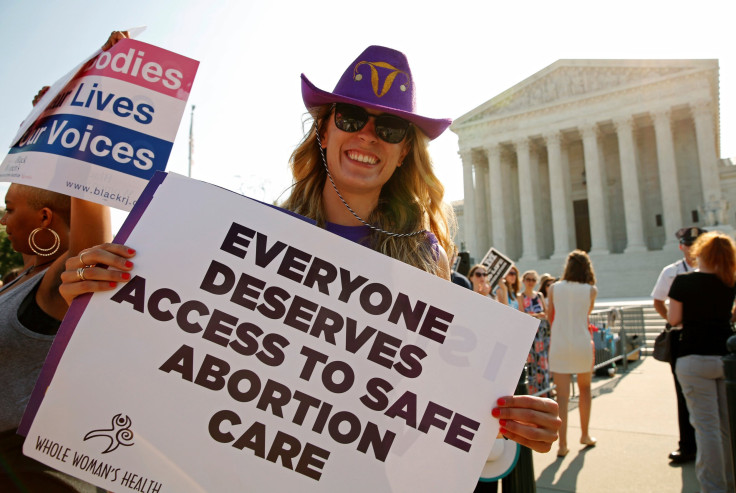Texas Anti-Abortion Rule Blocked By Federal Judge, Burial Or Cremation Of Fetal Remains Not Required

In a victory for abortion rights, a federal judge in Texas has again blocked the state's rules that mandate burial or cremation of fetal remains.
Austin-based U.S. District Judge Sam Sparks ruled Friday that the health department regulations had no public health benefit and could unduly burden women seeking abortions and "substantially outweigh the benefits." The rules would have banned hospitals and abortion clinics from disposal of fetal remains as bio-medical waste, which usually meant they are incinerated or placed in sanitary landfills. The rules were first meant to be implemented in December, but Sparks issued restraining orders at the time.
State Attorney General Ken Paxton reportedly said in response to the ruling: "Texas has chosen to dignify the life of the unborn by requiring the humane disposition of fetal remains. These rules would simply prevent health care facilities from disposing of the remains of the unborn in sewers or landfills. Today's ruling, however, reaffirms that the abortion lobby has grown so extreme that it will reject any and every regulation no matter how sensible."
Lawyers for Paxton's office countered that the rules applied only to human remains and not specifically to fetal tissue, which prompted Sparks to ask: "It's the official doctrine of the state that fetal tissue is not human remains. So you're bringing dignity to non-human remains?"
The groups supporting Spark's blocking of the rules say burial and cremation would cost above and beyond the abortion itself. Exactly how much more would be spent isn't clear, but some estimates put the figure at an extra $400 per fetus, nearly double the costs of an abortion at present.
Nancy Northup, president and CEO of the New York-based Center for Reproductive Rights called the rules "unnecessary, unconstitutionally vague, and manifestly insulting to women."
"Our Constitution protects a woman's fundamental right to access reproductive health care without needless barriers, and we will continue fighting for decisions like this wherever politicians choose to ignore that right," Northup reportedly said in a statement.
© Copyright IBTimes 2025. All rights reserved.






















